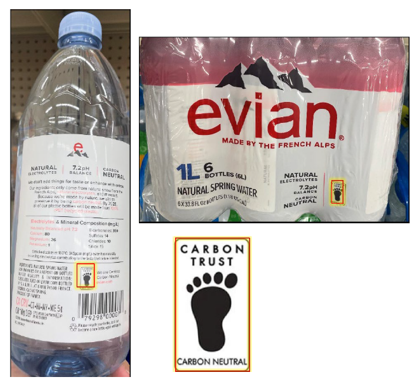Advertisers wishing to emphasize their environmental progressiveness often assert that their products or processes are "carbon neutral." This is meant to convey that there are no net emissions of carbon associated with the advertised product or process, which is often achieved by the company's purchase of "carbon offsets" – voluntary carbon emissions reductions or removals that occur somewhere else in the world, such as through planting of forests. As we have previously written, the market for carbon offsets has been under attack in recent months due to occasionally questionable accounting methods used to calculate carbon reductions and removals, and because activists tend to think the entire concept gives advertisers a "free pass" from reducing their own emissions merely by buying cheap credits created somewhere else.
The latest blow to the use of carbon offsets and carbon neutral claims comes in a devastating court opinion from the US District Court for the Southern District of New York. There, the court largely denied Danone Waters of America's (Danone) motion to dismiss a lawsuit challenging its "carbon neutral" claim, which it made on bottles of Evian spring water. The claim was premised on a third-party certification, provided by the Carbon Trust, that Evian lifecycle carbon emissions had been fully offset.
One of the reasons the court's decision is so terrible for advertisers making "carbon neutral" claims is that it characterizes the term as ambiguous and credits the plaintiffs' allegations regarding consumer confusion that the term provokes. This decision could inspire similar claims by other plaintiffs in other courts and against other advertisers.
The Evian Lawsuit
In October 2022, a proposed class of consumers filed a lawsuit against Danone asserting claims under various state laws alleging the company is deceiving consumers by advertising and labeling its Evian-branded spring water as "carbon neutral." The complaint alleged that a reasonable consumer, upon reviewing the product's label and packaging, would infer that the manufacturing process is sustainable and leaves no carbon footprint.
Central to the dispute is the Carbon Trust certification logo (a footprint) prominently featured on the product's packaging, as shown below. Plaintiffs argue that despite this third-party certification, the "carbon neutral" claim was misleading because the product's manufacturing and distribution do emit carbon dioxide. Additionally, the plaintiffs contend that even if the claim is understood by consumers to represent a carbon offset purchase, it remains deceptive because Danone does not sufficiently convey this fact to consumers.

In response, Danone sought to dismiss the complaint on two grounds. First, that the company asserted its packaging accurately discloses that the "carbon neutral" assertion is based on the certification provided by Carbon Trust. Secondly, Danone argued that no reasonable consumer would interpret "carbon neutral" to mean that the product emits no carbon dioxide throughout its entire life cycle.
The court rejected Danone's arguments, permitting many of the plaintiffs' claims under Massachusetts and California law to proceed.
Court Decision
First, the court held that a reasonable consumer could plausibly be misled by Danone's "carbon neutral" claim because Danone's use of the term is ambiguous. The court found that the claim lacked a common everyday meaning, describing it as "more technical and scientific, unfamiliar to and easily misunderstood by the reasonable consumer." The court further concluded that the Federal Trade Commission's warning against the use of “unqualified general environmental benefit claims” contained in the Green Guides (applicable by reference in state law) also supports a finding that the term "carbon neutral" may plausibly deceive and mislead consumers.
Importantly, the court concluded that it is more appropriate for a jury to decide whether a carbon neutral representation is misleading than to dismiss such claims at the pleading stage.
The court further held that merely providing links for consumers to "learn more" about Danone's carbon neutral certification was inadequate to clarify the alleged ambiguity, holding that reasonable consumers are not required to look beyond the label or do their own research when faced with an allegedly misleading representation. Notably, even if consumers fully understand that "carbon neutral" means the product is certified by a third party as such, the court found that the term could still be misleading when a consumer must visit the links provided on the label to understand its meaning under the Carbon Trust's standards.
Finally, the court declined to dismiss the plaintiff's fraud claim, as it plausibly alleged that Danone intentionally used the misleading "carbon neutral" representation to entice consumers to purchase the product at a higher price. This, coupled with allegations that consumers seek out eco-friendly products, created a "strong inference of fraudulent intent."
Why It Matters
This ruling not only lends further weight to the growing scrutiny surrounding "carbon neutral" claims, but also raises the bar for dismissing complaints related to such claims during the initial pleading stage. Consequently, defending against these lawsuits is likely to become more uncertain and more costly. The decision adds to a growing list of reasons why carbon neutrality claims are legally risky. If the court's reasoning is adopted by other courts, offering links to additional information may be insufficient to clarify the term's alleged ambiguity.
It is important to note that this is simply one court rendering a decision on one set of facts. The court's decision is not binding precedent on other courts or different facts. Nevertheless, it seems likely to serve as an inspiration to other plaintiffs.
The heightened risk is particularly noteworthy for companies relying on carbon offsets to support their carbon neutral claims. If your company is currently making or considering such representations, this decision warrants careful consideration and potential reassessment of your environmental marketing strategies.






 />i
/>i
